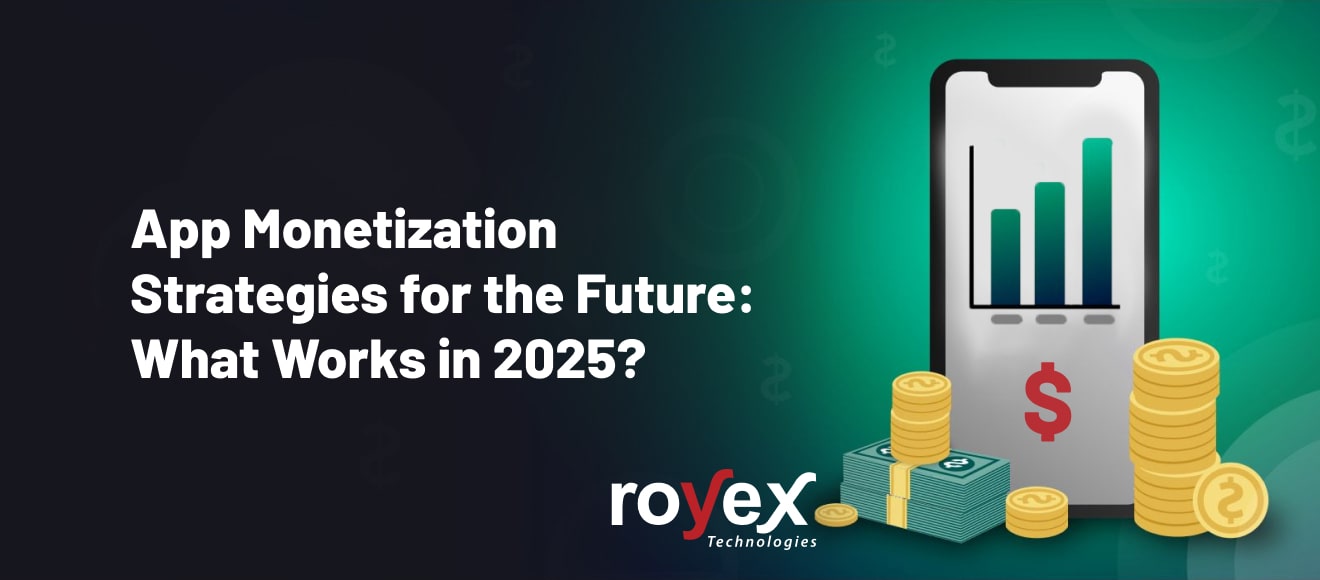
App Monetization Strategies for the Future: What Works in 2025?
The global app economy is entering a transformative era in 2025, marked by explosive growth and unprecedented competition. With over 2 million apps on the Apple App Store and 3.3 million on Google Play, developers face immense pressure to stand out and generate sustainable revenue streams. The projected global app revenue is expected to surpass $613 billion this year, underscoring the high stakes and vast opportunities in this sector. As users become more discerning and digitally savvy, simple monetization tactics like basic banner ads or one-time purchases are no longer sufficient. Instead, the focus has shifted toward more sophisticated, user-centric strategies that leverage advanced technologies and adapt to evolving consumer expectations.
In 2025, app monetization is defined by a blend of innovation, personalization, and compliance with tightening data privacy regulations. Subscription models continue to dominate, offering tiered and flexible pricing to cater to a wide range of user preferences, while in-app purchases and virtual goods remain crucial, especially in gaming and content-driven platforms. Artificial intelligence and automation are revolutionizing how apps deliver personalized experiences and optimize ad placements, making monetization less intrusive and more effective. Meanwhile, blockchain and NFT integration are opening new avenues for secure transactions and digital asset ownership, particularly in gaming and creator-focused apps. As developers navigate this dynamic landscape, understanding and adopting these forward-looking monetization strategies is essential to drive engagement, maximize revenue, and ensure long-term success in the ever-evolving app marketplace
The Enduring Power of In-App Purchases (IAPs)

In-app purchases remain a cornerstone of app monetization, particularly for gaming and content-driven applications. In 2025, IAPs have matured beyond simple virtual currency and now encompass a wider range of offerings:
-
Consumables: These are items that can be purchased multiple times and are typically used within the app, such as extra lives in a game, boosts, or virtual currency packs. Their appeal lies in the recurring revenue potential they offer. For example, a puzzle game might offer "hint packs" as a consumable IAP.
-
Non-Consumables: These are one-time purchases that unlock permanent features or content, such as ad-free experiences, premium features, additional levels, or character skins. Offering a clear value proposition is key to driving non-consumable IAPs. A photo editing app might offer a one-time purchase to unlock advanced filters.
-
Subscriptions: This model provides recurring revenue by granting users access to premium content, features, or services for a set period (e.g., monthly or annually). Subscription models thrive in apps offering ongoing value, such as streaming services, productivity tools, and fitness apps. The key to successful subscription monetization lies in consistently delivering valuable content and features that justify the recurring cost. For instance, a language learning app might offer a premium subscription for access to advanced lessons and personalized learning plans.
The Evolving Landscape of In-App Advertising
While often perceived as intrusive, in-app advertising remains a significant revenue stream for many apps, especially those offering free content. In 2025, the focus is on delivering less disruptive and more engaging ad experiences:
-
Rewarded Video Ads: These ads offer users in-app rewards (e.g., virtual currency, extra lives, exclusive content) in exchange for watching a short video. This opt-in format is generally well-received by users as it provides a clear value exchange. A gaming app might offer 50 extra coins for watching a 30-second video ad.
-
Playable Ads: These interactive ads allow users to experience a mini-version of the advertised app before deciding to download it. They tend to have higher engagement rates and conversion rates compared to static banner ads.
-
Native Advertising: This type of advertising is designed to blend seamlessly with the app's content and design, making it less intrusive. Examples include sponsored content in news feeds or product placements within e-commerce apps.
-
Offerwalls: These present users with a list of tasks (e.g., installing other apps, completing surveys) in exchange for in-app rewards. While effective for generating revenue, it's crucial to ensure the offers are relevant and the user experience remains positive.
AI and automation further optimize ad delivery, ensuring ads are contextually relevant and less intrusive, while providing better fraud detection and actionable insights for publishers
The Rise of Hybrid Monetization Models
Increasingly, successful apps are adopting hybrid monetization strategies, combining two or more of the aforementioned methods. This approach allows for diversification of revenue streams and caters to different user preferences:
-
Freemium with Ads: Offering a basic version of the app for free with advertisements, and providing an option to remove ads through a one-time purchase or a subscription. This model allows for a wide user base while offering a premium, ad-free experience for paying users.
-
Freemium with IAPs: Providing a free version with limited features or content, and offering additional features, content, or virtual goods as in-app purchases. This is common in gaming, where the core gameplay is free, but players can purchase items to enhance their experience.
-
Subscription with IAPs: Combining a subscription model for access to core content or features with the option to purchase additional items or content through IAPs. This can be effective for apps that offer both ongoing value and opportunities for supplementary purchases.
Emerging Monetization Strategies in 2025
Beyond the established methods, several newer strategies are gaining traction in 2025:
-
Data Monetization (with User Consent): While privacy concerns are paramount, ethically sourced and anonymized user data can be valuable. Apps can offer insights or aggregated data to businesses, provided they have explicit user consent and transparency about data collection and usage.
-
Blockchain and NFTs: For certain types of apps, particularly games and digital collectibles platforms, blockchain technology and Non-Fungible Tokens (NFTs) offer novel monetization opportunities. Users can own and trade unique digital assets within the app, creating new revenue streams for developers through transaction fees or the sale of initial NFT offerings.
-
Affiliate Marketing: Integrating relevant affiliate links or product recommendations within the app can generate revenue when users make purchases through those links. This strategy works best when the promoted products or services align with the app's core functionality and user base. For instance, a travel app might partner with hotel booking websites.
Key Considerations for Effective App Monetization in 2025

Regardless of the chosen strategy, several key considerations are crucial for success in 2025:
-
User Experience First: Intrusive or poorly implemented monetization can lead to user churn. Prioritizing a seamless and enjoyable user experience is paramount.
-
Value Proposition: Users are more likely to engage with monetization strategies when they perceive clear value in return, whether it's ad-free access, exclusive features, or in-game advantages.
-
Target Audience: Understanding the target audience's preferences and spending habits is crucial for selecting the most effective monetization methods.
-
A/B Testing and Optimization: Continuously testing different monetization approaches and optimizing their implementation based on user behavior and data is essential for maximizing revenue.
-
Privacy and Transparency: Being transparent about data collection practices and respecting user privacy is crucial for building trust and avoiding potential backlash.
Emerging and Niche Strategies
-
Affiliate Marketing and Sponsorships: Partnering with brands or promoting third-party products.
-
Physical Goods Sales: For e-commerce and lifestyle apps.
-
Crowdfunding and Donations: Especially relevant for community or creator-focused platforms.
-
Gamification: Using rewards, badges, and challenges to encourage engagement and spending
Comparison of Leading Monetization Strategies in 2025
|
Strategy |
Best For |
Key Benefits |
Challenges |
|
Subscription Models |
SaaS, Media, Messaging |
Predictable revenue, high retention |
Requires ongoing value delivery |
|
In-App Purchases |
Gaming, Productivity, Utility |
High revenue potential, flexible offers |
Can alienate non-paying users |
|
Advanced In-App Ads |
Free Apps, Games, News |
Scalable, diverse formats, user incentives |
Ad fatigue, privacy concerns |
|
Hybrid Monetization |
Broad Audience Apps |
Maximizes revenue, caters to all user types |
Complexity in implementation |
|
Community Monetization |
Social, Creator Platforms |
Engagement, diversified income |
Moderation, revenue sharing |
Key Takeaways for 2025
-
User-centricity is at the heart of successful monetization—personalization, transparency, and value-driven engagement are non-negotiable.
-
Hybrid models offer flexibility and resilience in a changing market.
-
AI and automation are essential for optimizing revenue and user experience.
-
Privacy and trust are critical differentiators in a crowded app landscape.
-
Community-driven and creator-focused monetization are on the rise, reflecting shifting user expectations and content consumption habits.
In 2025, the most effective app monetization strategies are those that balance innovative revenue generation with user satisfaction, privacy, and long-term engagement. Apps that adapt to these trends will be best positioned for sustainable success in the years ahead
Conclusion
The future of app monetization in 2025 is characterized by a blend of established and emerging strategies, with a strong emphasis on user experience and value exchange. While in-app purchases and advertising remain dominant, hybrid models and newer technologies like blockchain are opening up exciting possibilities. By carefully considering their target audience, prioritizing user experience, and continuously experimenting and optimizing, app developers can build sustainable and profitable businesses in the evolving mobile landscape of 2025.
Established in 2013, Royex Technologies is a leading mobile app development company in Dubai, that provides innovative solutions for small, medium, and large-scale companies. We specialize in responsive web development, mobile app development, CRM integration, AI solutions for website & mobile applications, and many more. Our extensive experience in mobile app development will help you to take your business to a high level.
Check our portfolio to see our previous works. Contact us via email at info@royex.net or call us at +971566027916 to get started with us.




